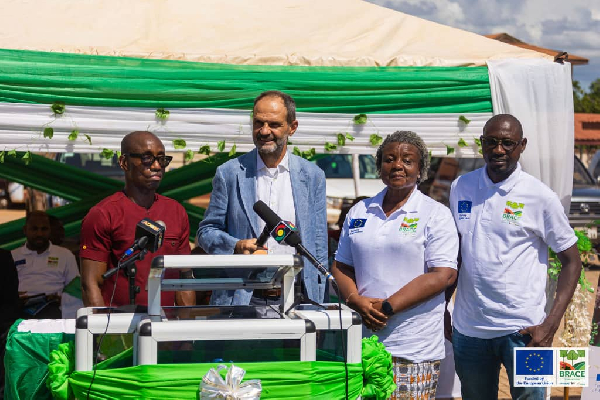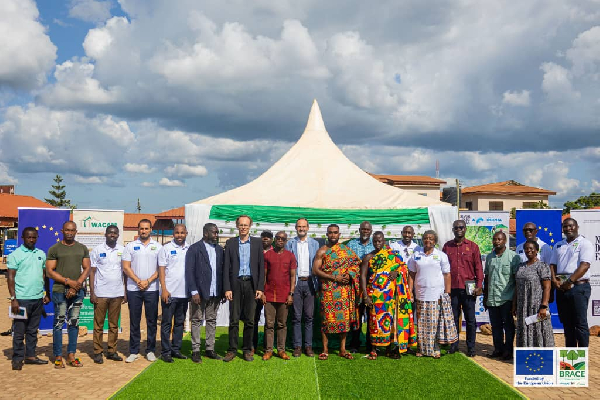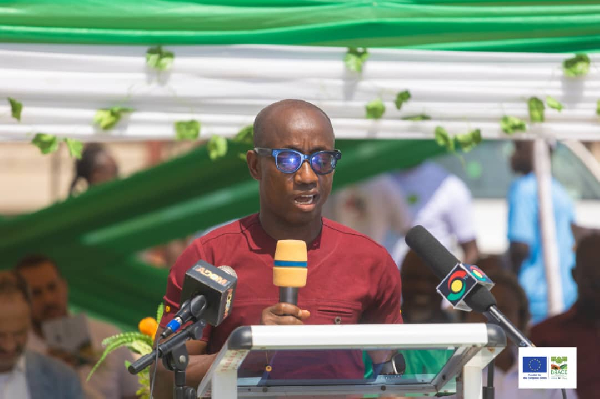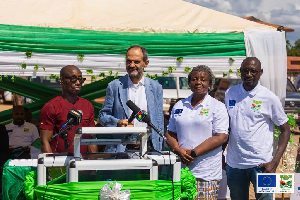The European Union (EU) has launched the "Building Resilient and Active Communities in Extractive Landscapes in Ghana (BRACE)" project, aimed at improving sustainable mining to safeguard the environment and protect individuals living in mining areas.
BRACE underscores the EU’s strong commitment to fostering responsible resource extraction practices that prioritize environmental preservation and the well-being of local communities.
With EUR 1.718 million in funding from the European Union, the BRACE project, implemented by a consortium of not-for-profit organizations, including WACAM and the Nature and Development Foundation (NDF), and led by A Rocha Ghana, also aims to ensure adherence to human rights, transparency, and accountability in mineral governance.
This contributes to sustainable and equitable environmental management and good natural resource governance in Ghana.
The BRACE project targets a diverse array of stakeholders, including Community-Based Organizations (CBOs), particularly youth groups, women’s groups, Civil Society Organizations (CSOs), Traditional Authorities (TAs) in host mining communities, media partners, Community Resource Management Area (CREMA) Executive Committees (CECs), and their communities, partners from the extractive industry, and mining communities.
"Mining is important for local jobs and revenues, but mining operations can cause serious damage to local communities and the environment," said Massimo Mina, Head of Cooperation in the EU Delegation to Ghana.
He noted that Ghana’s extractive sector is vital to the nation's economy, contributing significantly to export revenues, while mining in rural areas also provides much-needed income and jobs to many.
"The global demand for minerals, particularly transition minerals and other strategic minerals, keeps rising and is projected to increase even further in the future. The Government of Ghana plans to develop the country as a mining hub for such minerals," he said.
He noted that irresponsible mining practices by both licensed and unlicensed mining operators over the last two decades have resulted in serious negative environmental and social impacts.
Communities residing near large-scale mining sites endure loss of land, contamination of water sources by toxic substances, and health diseases.
"A responsible mining sector is urgently needed and possible. We are ready to act with our partners to make mining work better for the people and minimize environmental impacts. We want to open up ways for a more sustainable development of Ghana," he added.
During the project launch, Dr. Seth Appiah-Kubi, the National Director of A Rocha Ghana, reiterated the significance of acknowledging the diverse interests within our landscapes, spanning food and water security, sustainable forest management for ecosystem services, and climate resilience.
He stressed the urgent necessity for a balanced mining framework that respects community rights to benefit from these various land uses.
In his project overview presentation, Project Coordinator Daryl Bosu highlighted Ghana's exceptional opportunity to leverage the ongoing review of minerals and mining policy to prioritize social and environmental protections.
He emphasized the importance of mainstreaming Free, Prior, and Informed Consent (FPIC) as the foundation of mineral governance in Ghana, particularly amidst the expansion of the extractive sector for transition minerals.



General News of Friday, 17 May 2024
Source: www.ghanaweb.com













